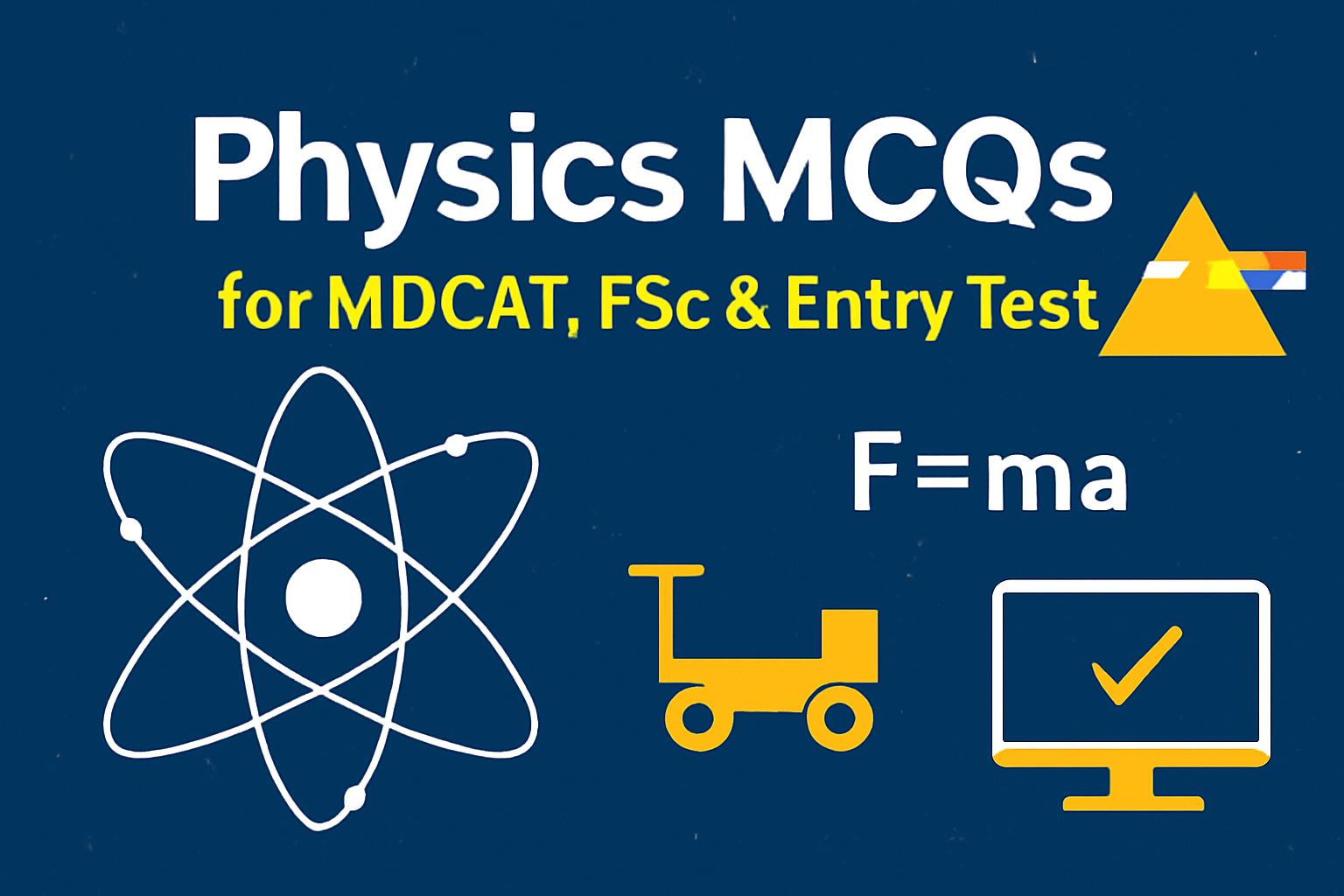
Physics
Rotational and Circular Motion
Page 23 of 24
#177 Linear velocity \(\vec{V}\) and centripetal force \(\vec{F}_c\) are
A) Perpendicular
B) Parallel
C) Antiparallel
D) Inclined at 45° to each other

#178 The point at which an applied force produces a linear acceleration but no rotation is called
A) Centre of gravity
B) Origin
C) Geometric center
D) Centre of mass

#179 Which of the following quantities remain constant in a planetary motion?
A) Speed
B) K.E
C) Angular momentum
D) Angular speed

#180 If the angular velocity of Earth around its own axis is doubled, which statement is correct?
A) \(K.E_{rot} = \text{doubled}\), \(T = \text{halved}\)
B) \(K.E_{rot} = \text{fourfold}\), \(T = \text{halved}\)
C) \(K.E_{rot} = \text{constant}\)
D) \(T = \text{constant}\)

#181 The acceleration of a body undergoing uniform circular motion is constant in
A) Magnitude only
B) Direction only
C) Both magnitude and direction
D) Neither magnitude nor direction

#182 A pendulum on Earth has a time period 1 sec. Its time period in a box orbiting Earth is
A) 1 s
B) 5 s
C) 0
D) 8

#183 Angular speed of a satellite around Earth is
A) \(\sqrt{\frac{GM}{r^3}}\)
B) \(\frac{GM}{r}\)
C) \(\sqrt{\frac{GM 2}{r^3}}\)
D) \(\frac{GM}{r}\)

Page 23 of 24










Register or Login for comments
Comments: